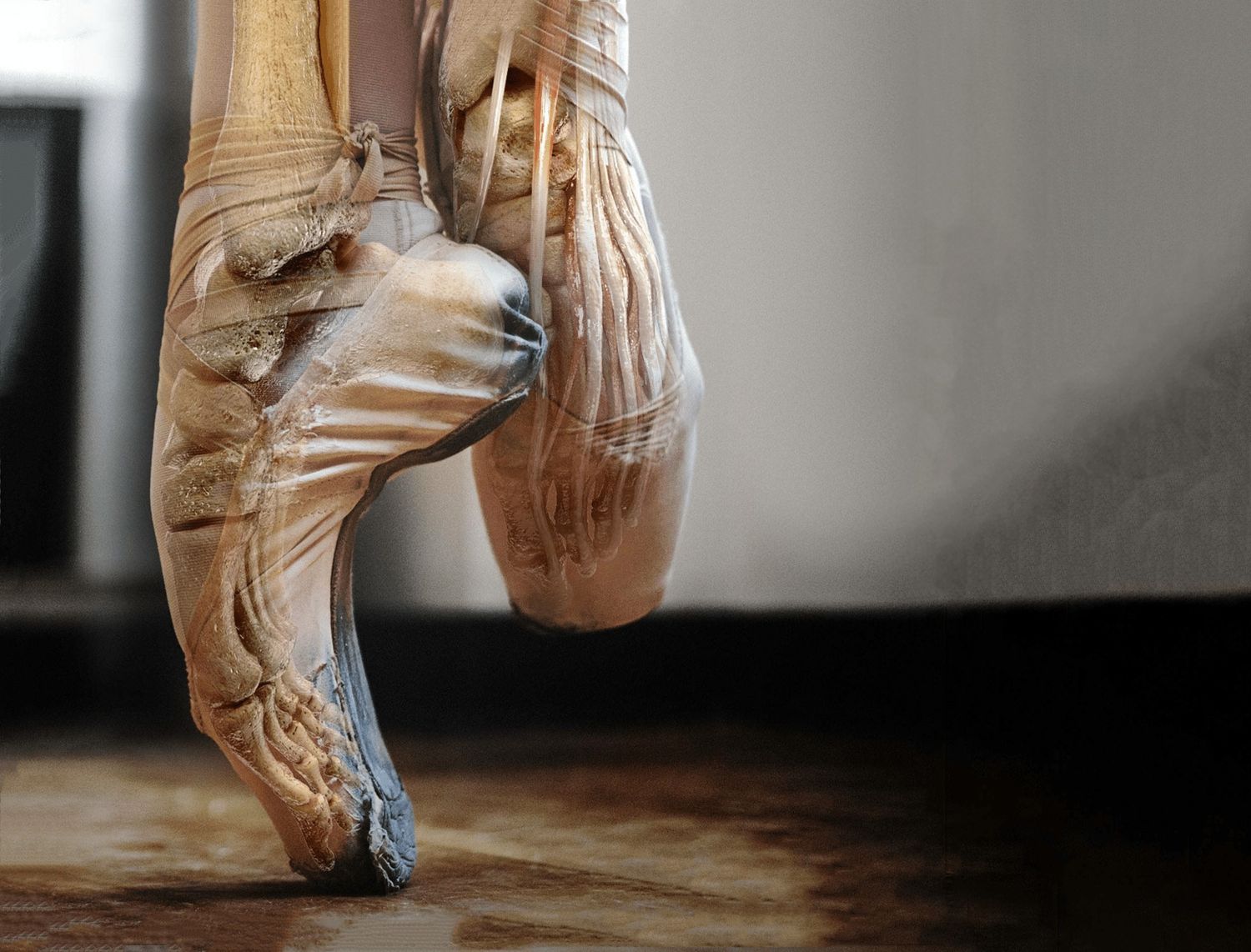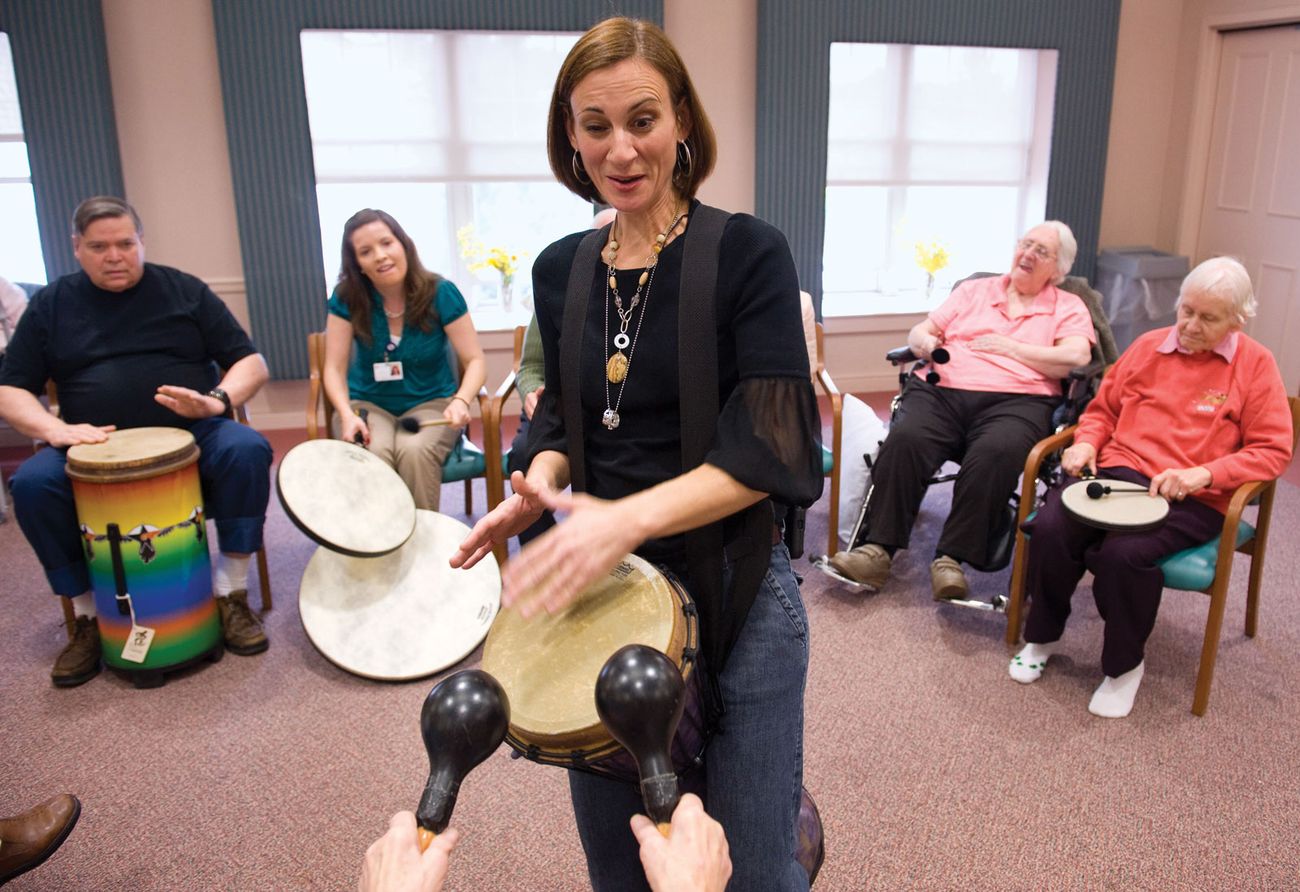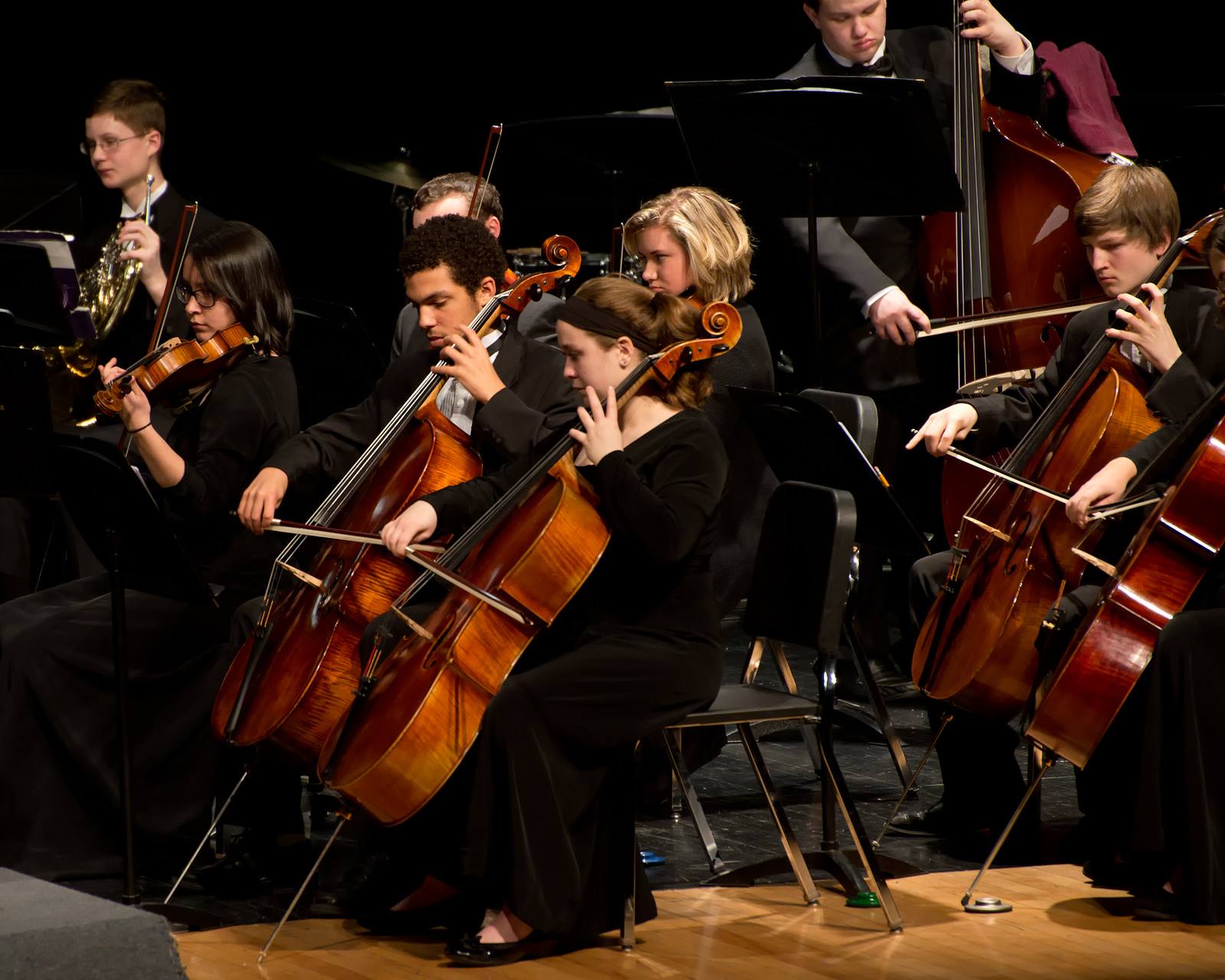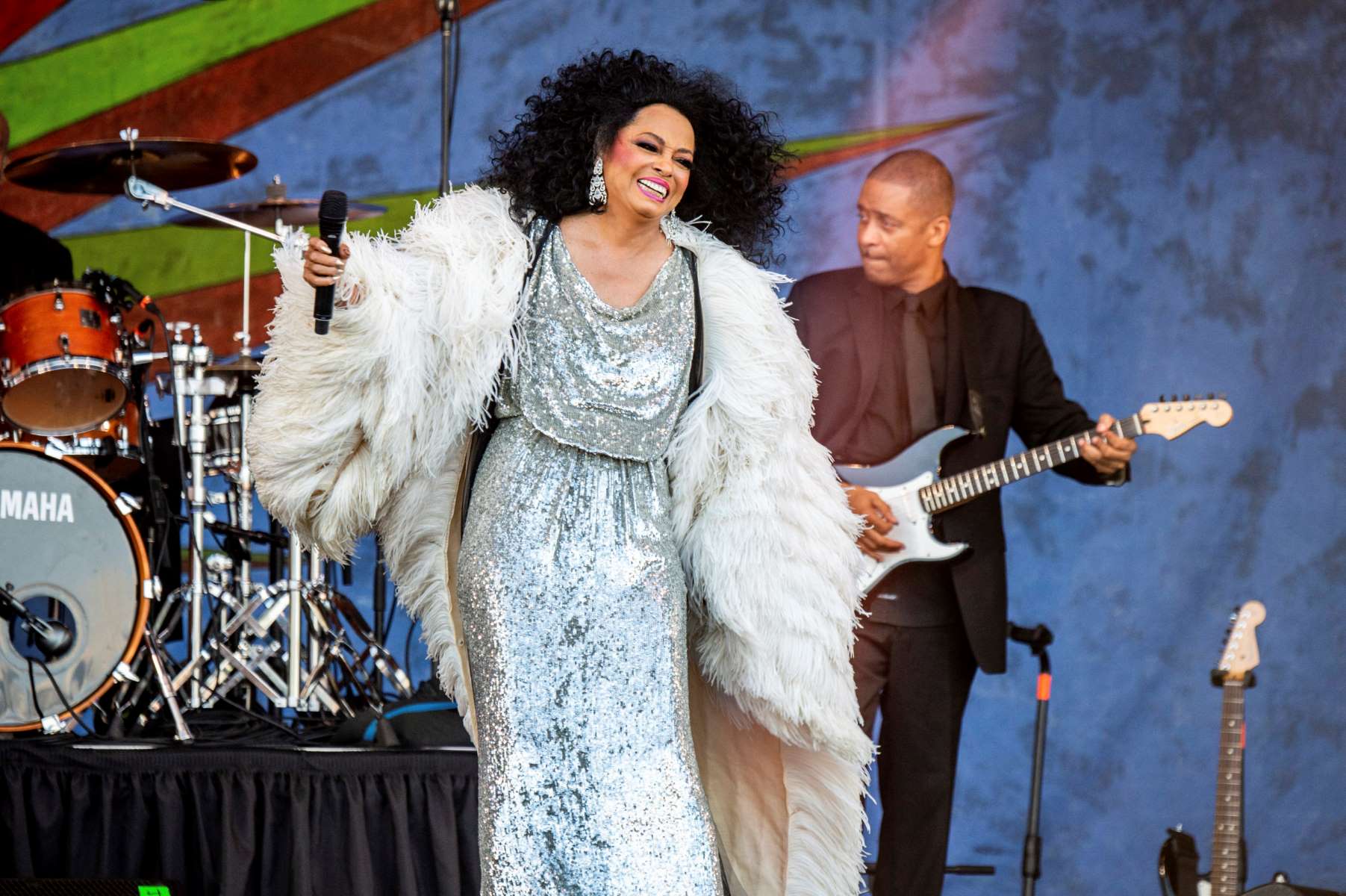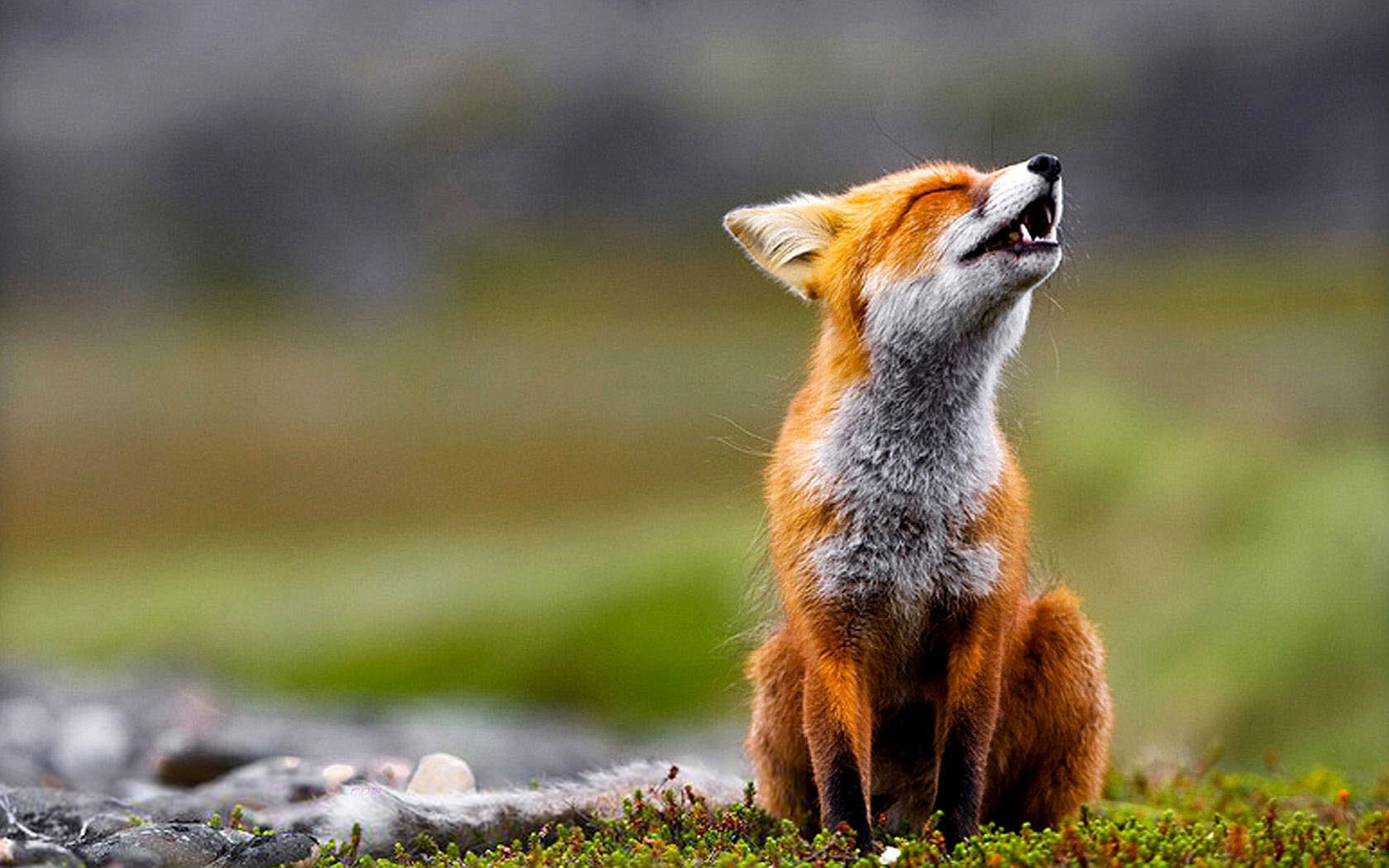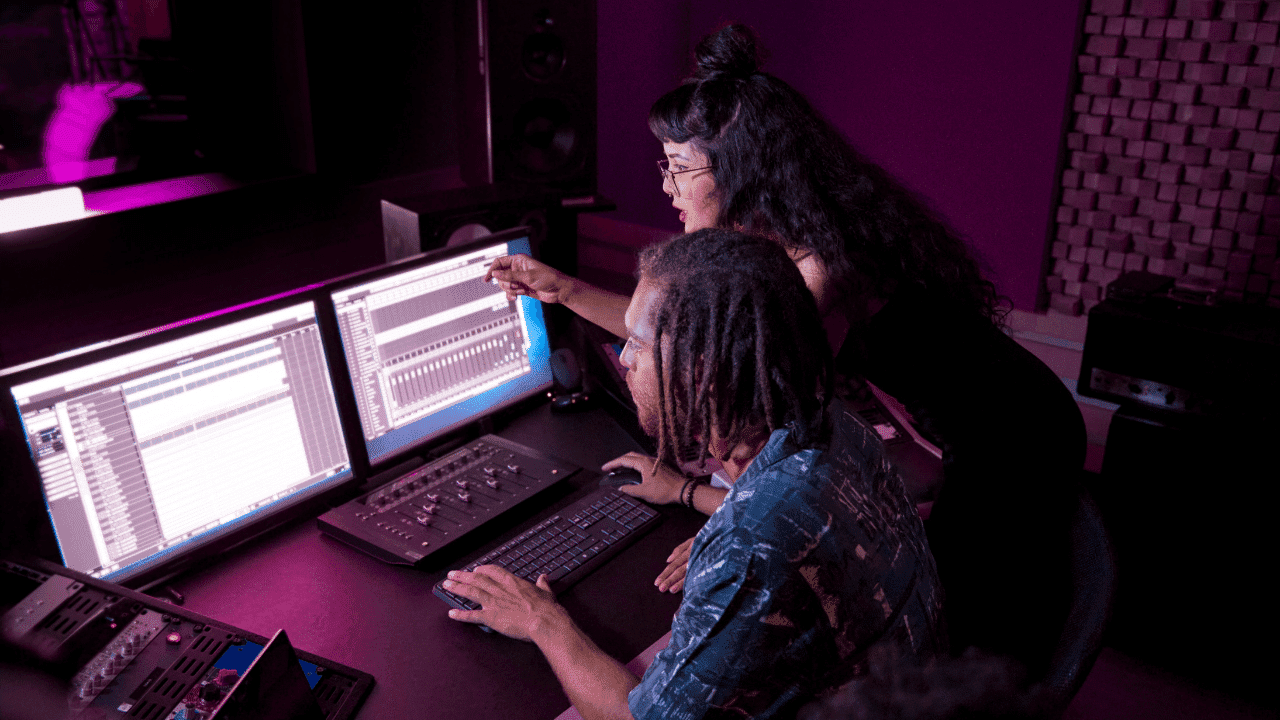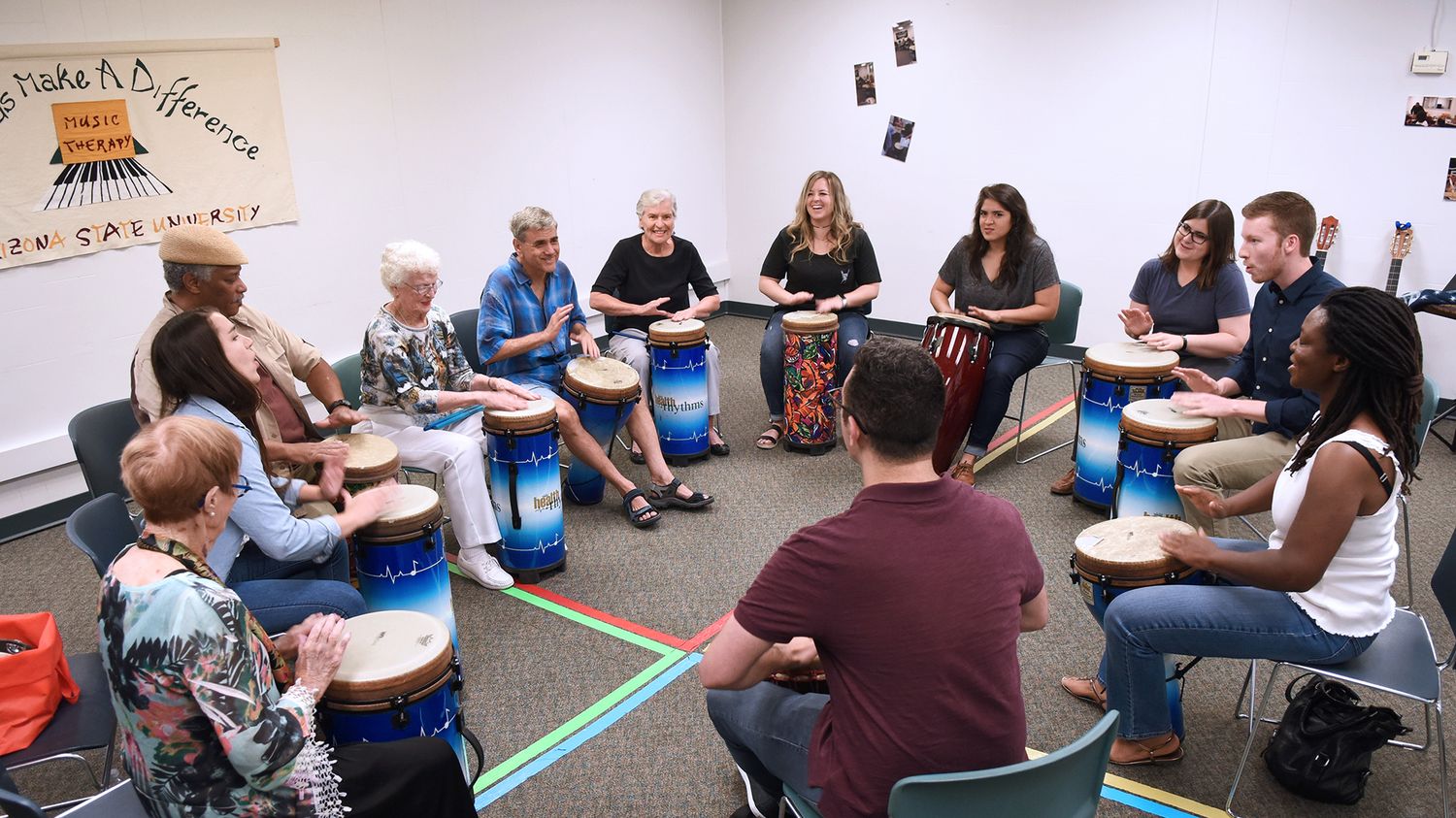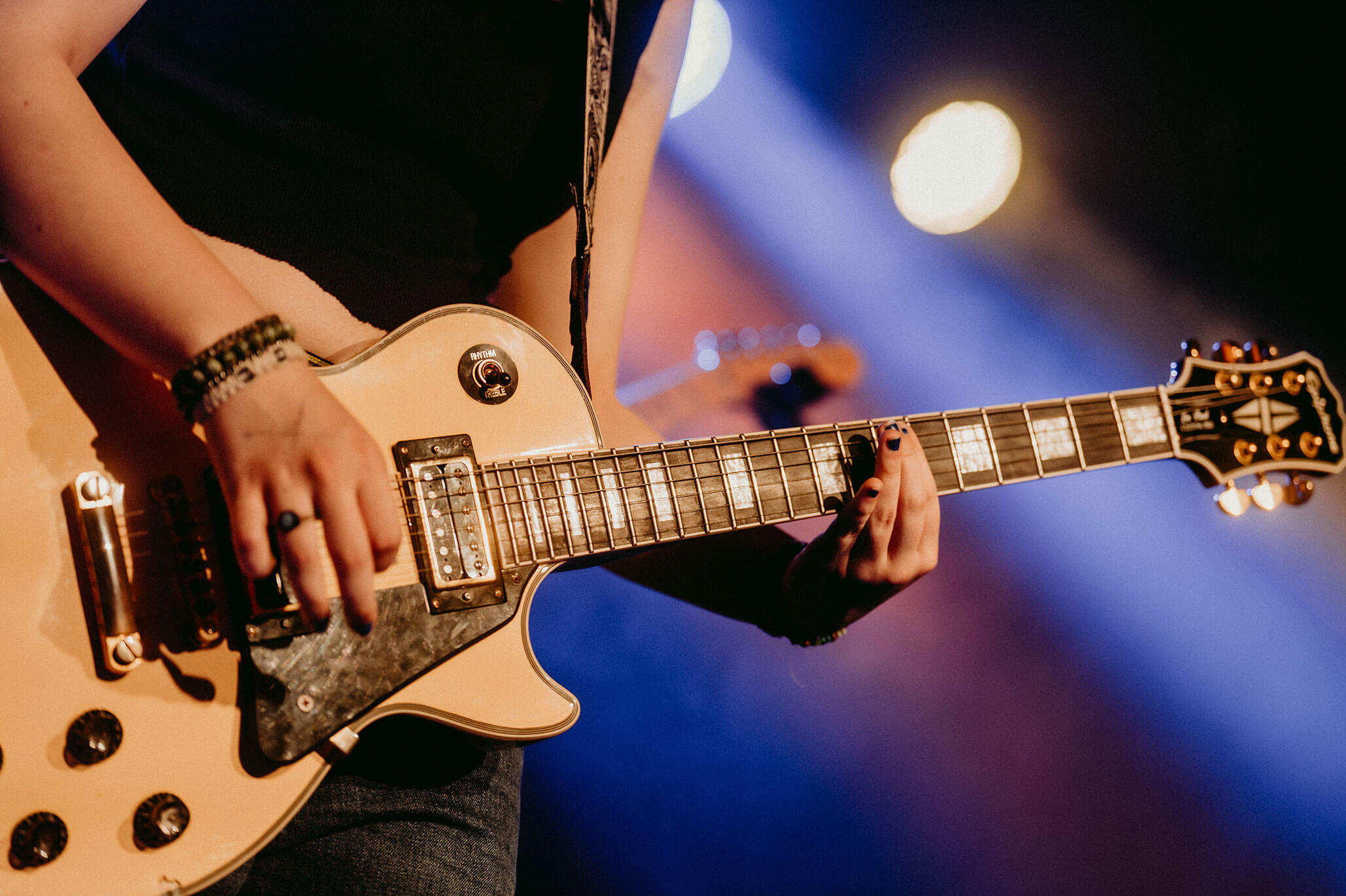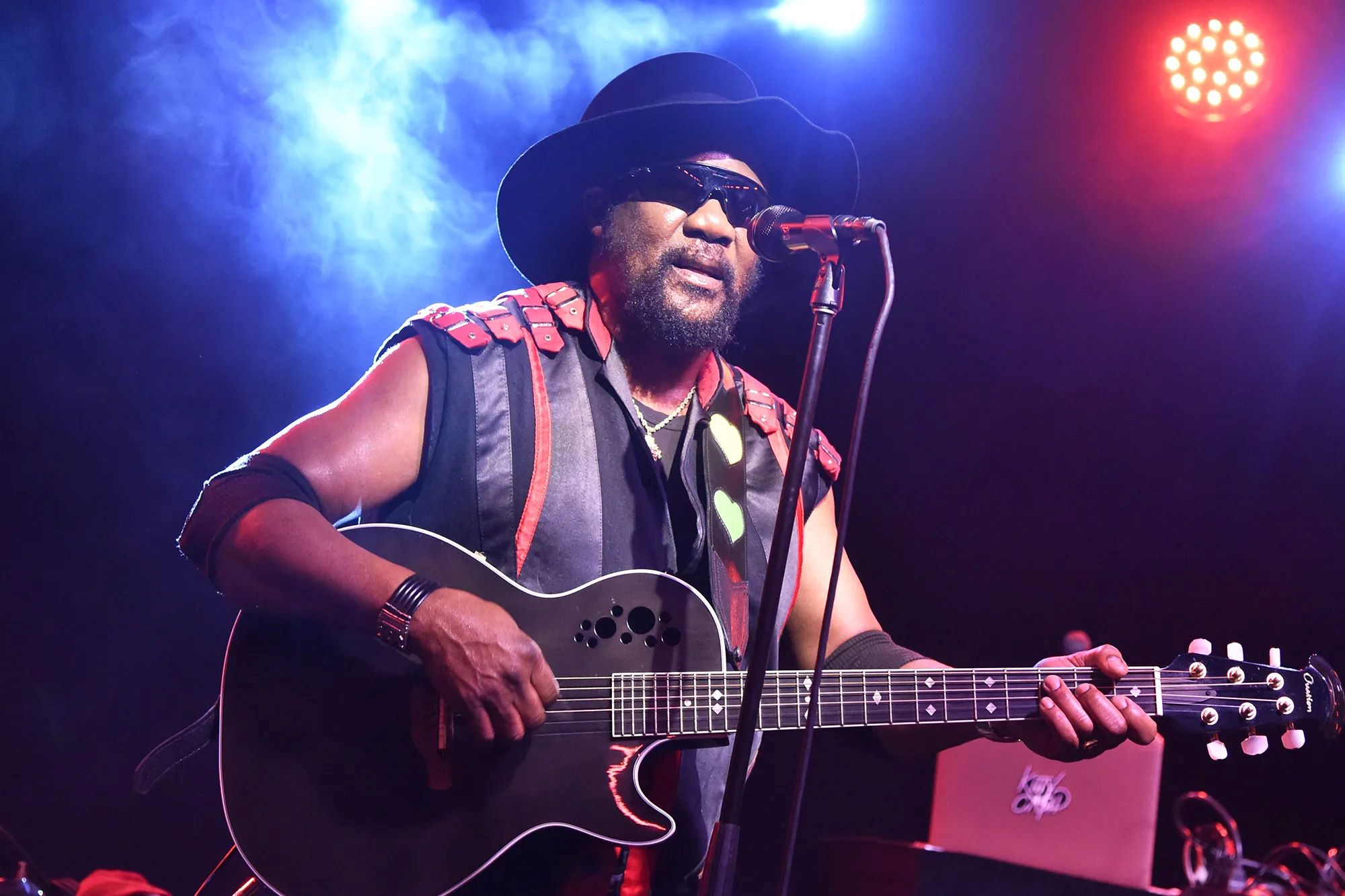

Reggae
Why Do You Like Reggae Music
Modified: January 22, 2024
Discover the reasons why people love Reggae music and how it brings joy, positivity, and a rhythmic beat to their lives. Explore the essence of Reggae and its uplifting impact on music enthusiasts globally.
(Many of the links in this article redirect to a specific reviewed product. Your purchase of these products through affiliate links helps to generate commission for AudioLover.com, at no extra cost. Learn more)
Table of Contents
Introduction
Welcome to the world of reggae music, where the infectious rhythms and soulful melodies create a unique and uplifting musical experience. Reggae, originating from the island of Jamaica, has captivated audiences worldwide with its mesmerizing beats and heartfelt lyrics. From its humble beginnings in the late 1960s, reggae music has evolved into a powerful cultural force, spreading messages of love, unity, and social justice.
Reggae music found its roots in the vibrant musical traditions of Jamaica, blending elements of mento, ska, and rocksteady to create its distinctive sound. Artists like Bob Marley, Peter Tosh, and Jimmy Cliff took reggae to international heights, bringing the genre to mainstream audiences and cementing its place in music history.
What sets reggae apart is its ability to transcend borders and connect people from different cultures and backgrounds. Its rhythmic grooves, characterized by the prominent bassline and syncopated guitar strums, instantly transport listeners to the sunny beaches and laid-back vibes of the Caribbean.
But reggae is more than just a genre of music. It is a philosophy, a way of life that embraces peace, love, and unity. Through its lyrics, reggae tackles social and political issues, advocating for equality, justice, and the eradication of oppression. It serves as a powerful tool to spread awareness, ignite conversations, and inspire positive change.
Reggae’s universal appeal lies not only in its infectious melodies but also in the profound messages it delivers. From songs of empowerment and self-acceptance to calls for environmental conservation and social harmony, reggae music resonates with listeners on a deep level, touching their hearts and inspiring them to make a difference.
So, why do people like reggae music? The answer varies for each person, but it all boils down to the music’s ability to evoke emotions, transport listeners to a state of tranquility, and connect them with something greater than themselves. Whether you’re drawn to the rhythmic grooves, the socially conscious lyrics, or the sense of community that reggae brings, there’s something undeniably special about this genre.
In this article, we will delve deeper into the origins of reggae music, explore its roots and influences, dissect the rhythms and beats that make it so infectious, and examine the powerful lyrics and themes that define the genre. We will also explore the social and political impact of reggae, its global appeal, and the positive vibes it spreads to listeners worldwide. Join us as we take a journey through the fascinating world of reggae music.
Origins of Reggae Music
To understand the origins of reggae music, we must go back to the vibrant streets of Kingston, Jamaica, in the late 1960s. It was during this time of political unrest and social upheaval that reggae emerged as a powerful musical expression of the people’s struggles and aspirations.
Reggae evolved from earlier Jamaican music genres such as mento, a folk style infused with African and Caribbean influences, and ska, a lively and upbeat genre that found popularity in the 1960s. Ska, with its syncopated beats and infectious horn sections, laid the foundation for what would become reggae.
One particular innovation that shaped the sound of reggae was the development of the “one drop” rhythm. This rhythm, characterized by a steady emphasis on the third beat of each measure, created a laid-back and hypnotic groove that would become synonymous with reggae music.
The visionary artists who pioneered reggae, such as Bob Marley, Peter Tosh, and Bunny Wailer, infused the music with their own unique experiences and perspectives. They used reggae as a platform to tell the stories of the oppressed, shed light on social injustices, and promote messages of unity and love.
The early recordings of reggae music were often produced in small, makeshift studios in Kingston, known as “sound systems.” These sound systems played a crucial role in the dissemination of reggae music, as they would bring their speakers and turntables to local neighborhoods, allowing people to dance and socialize to the latest reggae tunes.
Reggae music’s popularity grew rapidly, not only within Jamaica but also abroad. It became a voice for the marginalized and oppressed, resonating with people who were fighting for their rights and seeking liberation from the chains of inequality. The raw and unfiltered lyrics of reggae captured the spirit of the times and inspired movements for social change.
Today, reggae music continues to evolve and thrive, with new artists adding their own flavors and influences to the genre. It has become a global phenomenon, touching the hearts and souls of people from all walks of life, transcending language and cultural barriers.
As we explore the roots and influences of reggae music in the following sections, we will gain a deeper appreciation for the rich history and cultural significance of this extraordinary genre.
Roots and Influence of Reggae Music
Reggae music draws upon a rich tapestry of musical influences, weaving together elements from various genres to create its distinct sound. From the African rhythms brought by enslaved people to the Caribbean influences of mento and ska, reggae is a true reflection of Jamaica’s diverse musical heritage.
One of the key influences on reggae music is the African drumming traditions that were brought to Jamaica during the era of slavery. These rhythms, infused with the resilience and spirit of the African people, formed the foundation on which reggae would be built. The syncopated beats, polyrhythms, and deep grooves are reminiscent of the ancestral drumming traditions, connecting reggae to its roots in Africa.
Mento, a traditional Jamaican folk music genre, played a significant role in shaping the early sound of reggae. With its upbeat melodies, acoustic instrumentation, and humorous lyrics, mento provided a blueprint for the use of storytelling and social commentary in reggae music. The influence of mento can still be heard in the lively guitar strums and playful melodies that often accompany reggae songs.
Ska, with its energetic tempo, horn sections, and offbeat guitar chords, paved the way for the development of reggae. Ska was the dominant genre in Jamaica during the 1960s and had a profound impact on the emerging reggae sound. Reggae slowed down the frantic pace of ska, emphasizing the third beat of each measure and giving birth to the iconic “one drop” rhythm.
The influence of American R&B and soul music cannot be overlooked in the evolution of reggae. Artists like James Brown and Otis Redding had a profound impact on Jamaican musicians, who incorporated elements of funk, soul, and rhythm and blues into their own music. This fusion of styles gave reggae its soulful and emotive quality, adding depth and complexity to the genre.
Reggae’s influence can be felt far beyond the shores of Jamaica. The genre has had a significant impact on other musical styles and movements around the world. In the 1970s, reggae found a home in the punk and new wave scenes in the United Kingdom, with bands like The Clash and The Police incorporating reggae rhythms into their music. This fusion of punk and reggae helped to expose the genre to a wider international audience.
Reggae’s influence has also spread to genres such as hip-hop and electronic music. Artists like Bob Marley, The Wailers, and Lee “Scratch” Perry laid the groundwork for the use of samples, dub effects, and politically conscious lyrics in these contemporary genres. The steady beats and infectious grooves of reggae continue to find their way into modern music, ensuring its relevance and impact in the ever-evolving musical landscape.
The roots and influences of reggae music run deep, reflecting the history, culture, and struggles of the Jamaican people. Its ability to incorporate diverse musical elements and transcend cultural boundaries is a testament to its lasting power and influence. As we delve deeper into the rhythm and beats of reggae in the next section, we will discover how these elements come together to create the irresistible sound that has captured the hearts of millions around the world.
The Rhythms and Beats of Reggae
When it comes to reggae music, the rhythms and beats are the heartbeat that drives the genre. Reggae’s characteristic pulse and groove are instantly recognizable, creating a laid-back and infectious sound that captures listeners from the first note.
At the core of reggae music lies the “one drop” rhythm, which sets it apart from other genres. The “one drop” refers to the accentuation of the third beat in a 4/4 time signature, creating a smooth and relaxed feel that encourages people to sway and move to the music. This rhythm, with its emphasis on the offbeat, creates a sense of anticipation and release that is deeply ingrained in reggae’s DNA.
The bassline in reggae plays a crucial role in driving the rhythm and providing a solid foundation for the other instruments. The bass in reggae often features prominent, melodic lines that add depth and groove to the music. It acts as a guiding force, keeping the rhythm tight and giving the songs their distinctive feel.
The guitar in reggae music is characterized by its rhythmic approach, with musicians using a technique known as “skanking.” Skanking involves playing short, choppy chords on the offbeat, emphasizing the syncopation and creating a rhythmic bounce that is synonymous with reggae. The guitar in reggae may also incorporate melodic flourishes and improvised solos that add flavor and complexity to the songs.
Percussion instruments such as drums, hand drums, and shakers are also important components of reggae’s rhythmic landscape. The drums in reggae are often played with a light touch, focusing on intricate patterns and syncopated rhythms. The snare drum typically falls on beats two and four, creating a driving force that propels the music forward. Hand drums, such as the conga or the bongo, provide additional layers of rhythm and add a distinct Caribbean flavor to the sound.
Another key aspect of reggae’s rhythmic structure is the use of “dub” techniques. Dub emerged in the 1970s as a subgenre of reggae, emphasizing stripped-down instrumentation, heavy reverb, and echo effects. Dub music pushed the boundaries of production, creating a space for experimentation and innovation. The use of echo, delay, and other effects became synonymous with reggae, adding depth and dimension to the music.
The rhythms and beats of reggae music create a sense of unity and connection among listeners. Whether it’s the steady bassline, the skanking guitar chords, or the intricately layered percussion, each element works in harmony to create a sound that is as irresistible as it is unique.
As we explore the lyrics and themes in reggae music in the next section, we will discover how the rhythmic foundation of reggae serves as a vehicle for powerful storytelling and social commentary, making it not just a genre of music, but a powerful medium for change and self-expression.
Lyrics and Themes in Reggae Music
At the heart of reggae music lies its powerful lyrics and thought-provoking themes. Reggae has always been a vehicle for social commentary and storytelling, addressing important issues and spreading messages of love, unity, and empowerment.
The lyrics in reggae music often tackle social and political issues, shining a light on the struggles and injustices faced by marginalized communities. Artists like Bob Marley, Peter Tosh, and Burning Spear used their music as a platform to advocate for equality, justice, and the eradication of oppression. Through their lyrics, they called for social change and challenged the status quo.
Reggae music also celebrates the resilience and strength of the human spirit. Many songs convey messages of hope, empowerment, and self-acceptance, inspiring listeners to overcome adversity and embrace their inner power. Themes of love and unity are prevalent, emphasizing the importance of coming together as a global community to create a better world.
One of the distinct features of reggae lyrics is the use of metaphors and symbolism. Artists often employ poetic language to convey their messages in a profound and universal way. Whether it’s comparing the struggles of life to a battlefield or using the natural elements to represent social issues, the lyrics in reggae music are rich with imagery and depth.
The lyrics in reggae are often steeped in spirituality and Rastafarian beliefs. Rastafari, a religious and cultural movement born in Jamaica, has had a profound influence on reggae music. Rastafarian principles such as the reverence for nature, the belief in the divinity of Emperor Haile Selassie I, and the rejection of Babylonian systems of oppression are prominent themes in reggae lyrics, serving as a powerful force for social and spiritual enlightenment.
Reggae music’s lyrical content extends beyond the boundaries of Jamaica, resonating with people around the globe. The messages of unity, love, and social justice have transcended cultural and language barriers, making reggae a universal language of peace and understanding.
Through its lyrics and themes, reggae music challenges listeners to question the world around them, to strive for change, and to stand up against injustice. It fosters a sense of awareness and inspires individuals to become agents of positive transformation in their own lives and communities.
As we delve deeper into the social and political impact of reggae music in the next section, we will discover how these powerful lyrics and themes have influenced movements, sparked conversations, and continue to resonate with audiences worldwide.
The Social and Political Impact of Reggae
Reggae music is more than just a genre; it is a powerful tool for social and political change. From its early days in Jamaica to its global reach today, reggae has played a significant role in inspiring movements, raising awareness, and challenging established systems of oppression.
In the 1970s, reggae emerged as the voice of the marginalized and oppressed in Jamaican society. The lyrics of artists like Bob Marley, Peter Tosh, and Burning Spear addressed issues such as poverty, inequality, and racial discrimination. Their powerful words resonated with audiences, inspiring them to rise up and demand justice.
Reggae also became the voice of the Rastafarian movement, which sought to challenge the dominant social and political structures in Jamaica. Rastafarians, inspired by the teachings of Marcus Garvey and their own spiritual beliefs, embraced reggae as a means of expressing their resistance to the oppressive systems of “Babylon.”
Internationally, reggae music played a pivotal role in raising awareness of the struggles faced by people in the Caribbean and African diaspora. Bob Marley, in particular, became a global ambassador for reggae and used his platform to advocate for social justice and unity among all people.
One of the most significant examples of reggae’s social and political impact is the independence movement in Zimbabwe. During the 1970s, as the country fought against white minority rule, reggae music became a powerful tool of resistance. Artists like Bob Marley and Peter Tosh performed at the historic independence celebration in 1980, spreading messages of liberation and solidarity.
The message of unity and empowerment in reggae music also became a rallying cry for the struggle against apartheid in South Africa. Artists like Lucky Dube and Tiken Jah Fakoly used their music to inspire resistance and push for social change. Reggae became an anthem of hope for those fighting against the racially oppressive regime.
Beyond its impact on specific movements, reggae’s themes of peace, love, and justice continue to resonate with audiences worldwide. The music has the power to bring people together, foster a sense of community, and transcend cultural and social divides.
Today, reggae continues to inspire and influence artists from various genres. Its legacy can be heard in the socially conscious lyrics of hip-hop, the infectious rhythms of pop music, and the spiritual themes of roots music.
Reggae’s social and political impact is a testament to the power of music as a catalyst for change. Its lyrics and melodies touch the hearts and souls of people, inspiring them to question the world around them and strive for a more just and compassionate society.
As we explore the global appeal of reggae music in the next section, we will uncover how this genre has spread its positive vibes to every corner of the world, fostering a sense of unity and transcending cultural boundaries.
Reggae’s Global Appeal
Reggae music’s influence and appeal have transcended borders, capturing the hearts and ears of people from all walks of life around the world. From its roots in Jamaica, reggae has formed a global musical connection, spreading its positive vibes and inspiring generations across continents.
The international popularity of reggae music can be largely attributed to the iconic figures who brought the genre to the forefront of the global music scene. Artists like Bob Marley, Jimmy Cliff, and Peter Tosh used their voices to advocate for social change and unity, resonating with people from diverse backgrounds.
Reggae’s infectious rhythms and laid-back melodies have a universal appeal that transcends language barriers. The music’s ability to evoke a sense of relaxation, positivity, and escapism draws listeners in, transporting them to a sunny state of mind, regardless of their geographical location.
The reggae movement in the 1970s reached far beyond Jamaica’s shores, particularly in the United Kingdom, where it found a fervent following. British musicians embraced reggae and fused it with their own musical styles, giving rise to the “2 Tone” ska revival and influencing the emerging punk movement. Groups like The Specials and The Clash prominently incorporated reggae rhythms into their music, introducing it to a wider international audience.
Reggae’s global influence can also be heard in other genres such as hip-hop, electronic music, and pop. Artists from around the world have integrated reggae elements into their songs, infusing their music with the infectious grooves and positive spirit that define reggae.
Festivals dedicated to reggae music have sprouted up across the globe, serving as platforms for both established and emerging artists to showcase their talent. Events like the Rototom Sunsplash in Spain, the Reggae Sumfest in Jamaica, and the Sierra Nevada World Music Festival in the United States draw reggae enthusiasts from all corners of the world, demonstrating the wide-reaching appeal of the genre.
In recent years, reggae’s influence has even reached the Asian music scene, with artists from countries like Japan, South Korea, and Indonesia incorporating reggae flavors into their music. This cross-cultural fusion serves as a testament to reggae’s ability to transcend boundaries and inspire artists regardless of their cultural background.
Through its global appeal, reggae has fostered a sense of unity and camaraderie among people of diverse cultural backgrounds. The music’s positive and uplifting message of love, peace, and unity resonates with listeners worldwide, fostering a sense of community and common purpose.
Reggae’s global appeal is a testament to its timeless and universal message of hope and social change. From the shores of Jamaica to stages and speakers around the world, reggae music continues to connect people, break down barriers, and spread its positive vibrations to every corner of the globe.
As we explore the positive impact of reggae music in the next section, we will delve into how its uplifting messages and infectious rhythms contribute to personal connections and emotional transformations.
Reggae Music’s Positive Vibes
Reggae music is known for its positive and uplifting vibes, creating a sense of joy, unity, and tranquility among listeners. The infectious rhythms, soulful melodies, and powerful lyrics combine to create a musical experience that resonates with people on a deep and emotional level.
One of the reasons reggae music has such a positive impact is its ability to transport listeners to a state of relaxation and inner peace. The laid-back beats and melodic grooves have a calming effect, creating a sense of escape from the stresses of everyday life. It’s like taking a mental vacation to the sunny beaches of Jamaica, even if just for a few minutes.
Lyrically, reggae music is often filled with messages of love, unity, and empowerment. Artists use their voices to spread positivity and inspire listeners to be better versions of themselves. Reggae lyrics promote self-acceptance, encourage resilience in the face of adversity, and advocate for the power of love to overcome hate.
The themes of social justice and equality that are deeply woven into reggae music also contribute to its positive vibes. By addressing issues of oppression, discrimination, and poverty, reggae serves as a voice for the marginalized and oppressed. It raises awareness, sparks conversations, and challenges listeners to take action and make a difference in their own lives and in society.
But it’s not just the lyrics that make reggae music uplifting – it’s the overall energy and spirit that it brings. The infectious rhythms, the infectious grooves, and the infectious melodies all combine to create a feel-good atmosphere. It’s hard not to tap your foot, nod your head, or even start dancing when a reggae tune comes on.
Reggae’s positive vibes have the power to bring people together. Whether it’s at a concert, a festival, or just a gathering of friends, reggae music creates a sense of unity and community. The shared love for the genre creates a bond among listeners, fostering a sense of connection and positive energy that transcends cultural and language barriers.
Reggae music also has the remarkable ability to uplift and transform individuals on a personal level. It has the power to heal, to provide solace in difficult times, and to inspire personal growth and transformation. The positive messages and soothing melodies can touch the deepest parts of our souls, reminding us of our inner strength and capacity for love and compassion.
Whether it’s the rhythmic grooves, the heartfelt lyrics, or the overall positive energy it exudes, reggae music has a unique ability to uplift our spirits and fill our hearts with optimism. It is a testament to the power of music to inspire, connect, and bring about positive change in the world.
As we reflect on our own personal connections to reggae music in the next section, we will discuss how it has touched the lives of individuals and created lasting memories and experiences that continue to resonate long after the music has stopped playing.
Personal Connections to Reggae Music
Reggae music has a special way of forging personal connections with its listeners, touching the depths of their souls and creating lasting memories. The universal themes of love, hope, and unity found in reggae music speak to individuals in unique and personal ways, becoming a soundtrack to their lives.
For many, reggae music serves as a source of solace and comfort during challenging times. The uplifting melodies and positive lyrics can provide a sense of hope and encouragement, serving as a reminder that there is light at the end of the tunnel. Whether it’s going through heartbreak, facing personal struggles, or dealing with societal issues, reggae music offers a sense of empathy and understanding, letting listeners know they are not alone.
Reggae music also holds the power to transport listeners to specific moments and experiences in their lives. The nostalgia-inducing qualities of reggae melodies can evoke vivid memories, be it a carefree summer day, a road trip with friends, or a special moment shared with a loved one. The songs become ingrained in our personal narratives, forever associated with important chapters of our lives.
Furthermore, reggae music has a knack for fostering a sense of connection and community among its fans. Attending reggae concerts and festivals can be a transformative experience, as the shared passion for the music creates a bond among attendees. The infectious rhythms, the positive energy, and the collective singing and dancing bring people from all walks of life together, creating lifelong friendships and memories.
Reggae music has also inspired individuals to embrace its cultural roots and explore the broader aspects of Jamaican culture. Whether it’s through learning about the history of reggae, exploring the Rastafarian lifestyle, or delving into the vibrant art and fashion scenes of Jamaica, reggae music sparks curiosity and a desire to connect authentically with the culture behind the music.
On a personal level, reggae music can be a catalyst for self-discovery and personal growth. Its messages of love, peace, and empowerment encourage listeners to embrace their true selves, to stand up for what they believe in, and to strive for greater compassion and understanding in their interactions with others.
Indeed, reggae music has a unique capacity to touch the lives of individuals in profound and personal ways. It surpasses the boundaries of language, culture, and background, transcending the temporal and resonating with the core of our beings.
As we conclude our exploration of reggae music, it is clear that this genre has left an indelible mark on the hearts and souls of its listeners. Its positive vibrations, heartfelt lyrics, and captivating rhythms have created personal connections that go beyond the music itself, reminding us of the enduring power of music to inspire, uplift, and transform our lives.
Conclusion
Reggae music, with its infectious rhythms, powerful lyrics, and positive vibes, holds a special place in the hearts of millions around the world. From its humble beginnings in Jamaica to its global reach today, reggae has transcended boundaries and touched the lives of individuals in profound and personal ways.
We have explored the origins of reggae music, tracing its roots to the streets of Kingston and the rich musical traditions of Jamaica. We have examined the influence of mento, ska, and other genres that have shaped the reggae sound we know and love today.
The rhythmic grooves and beats of reggae have captivated audiences, inspiring them to move, dance, and connect with the music. We have delved into the symbolism of the “one drop” rhythm, the melodic basslines, and the rhythmic guitar chords that define the reggae sound.
Reggae music’s lyrics and themes have resonated with listeners, addressing social and political issues, advocating for justice and equality, and spreading messages of love and unity. The power of reggae to ignite social change and raise awareness is undeniable.
Reggae’s global appeal has brought people together, creating a sense of unity and connection across cultures and continents. Its positive vibrations have infiltrated various genres and influenced musicians worldwide, spreading the joy and infectious spirit of reggae music.
On a personal level, reggae music has forged deep connections with individuals, providing solace in times of hardship, evoking cherished memories, and inspiring personal growth. The communal experience of attending reggae concerts and festivals has created lifelong friendships and a sense of belonging.
As we conclude our journey through the world of reggae music, we recognize its enduring legacy as a force for positive change and unity. Its melodies, rhythms, and messages continue to inspire, uplift, and transform the lives of listeners worldwide.
So, why do you like reggae music? Perhaps it’s the infectious beats that make you want to move your body, the meaningful lyrics that resonate with your soul, or the sense of community and positive vibes that it brings. Whatever the reason, reggae music holds a powerful place in our hearts, reminding us of the boundless power of music to touch our lives and connect us to something greater.

